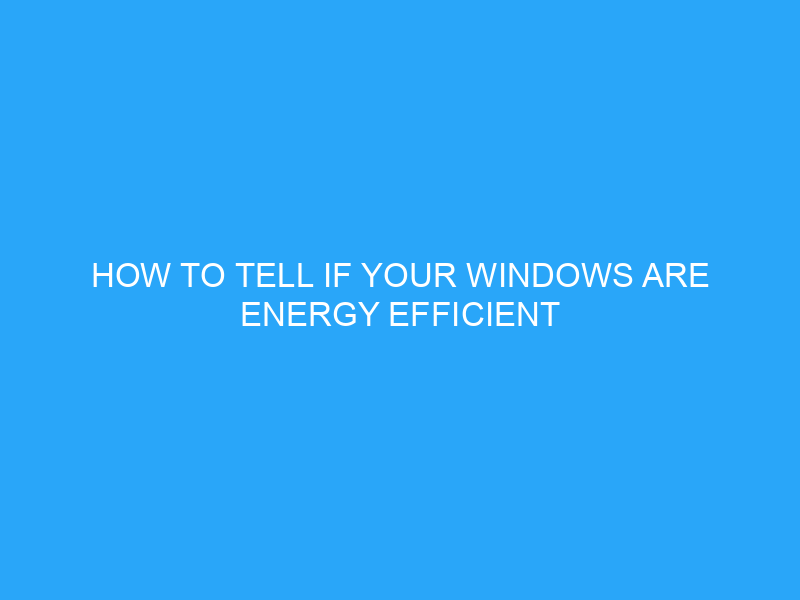Do you want to know if your windows are energy efficient or not? The answer is not always straightforward, but there are some key signs to look out for. In this article, we’ll explain the basics of energy efficiency, help you understand how to tell if your windows are energy efficient, and provide answers to some frequently asked questions about energy-efficient windows.
What is Energy Efficiency?
Energy efficiency is a measure of how much energy is required to perform a specific activity. It can refer to the efficiency of a building, home, appliance, or any other type of energy-related system. In the context of windows, energy efficiency refers to how much energy is required to keep the space cool or warm.
How to Tell if Your Windows Are Energy Efficient
The best way to tell if your windows are energy efficient is to have them tested by a professional energy auditor. The auditor will assess the energy efficiency of your windows and give you a detailed report on their performance. This report will include information on the window’s U-value and Solar Heat Gain Coefficient (SHGC). The U-value is a measure of how much heat is transferred through the window, and the SHGC is a measure of how much heat is absorbed by the window.
Here are some other signs that can indicate whether your windows are energy efficient:
1. Age of Windows
Older windows are not as energy efficient as new ones, so if your windows are more than 10 years old, they probably won’t be as energy efficient as you’d like.
2. Type of Windows
The type of windows you have can also affect their energy efficiency. Double-pane windows, for example, are more energy efficient than single-pane windows.
3. Quality of Windows
The quality of your windows can also affect their energy efficiency. High-quality windows will be more energy efficient than low-quality windows.
4. Window Treatments
Window treatments such as blinds and curtains can also affect the energy efficiency of your windows. Light-colored window treatments will reflect light and heat, helping to keep your space cool.
Frequently Asked Questions about Energy-Efficient Windows
1. How do energy-efficient windows work?
Energy-efficient windows are designed to reduce the amount of heat transfer through the window. They typically have double or triple panes, which create an insulating air layer between the panes. They also have low-emissivity (low-e) coatings on the glass to reduce the amount of heat that is absorbed.
2. How much energy can energy-efficient windows save?
Energy-efficient windows can save up to 25% of your energy bills. The actual amount of energy saved will depend on the type and quality of the windows, as well as the climate of your area.
3. Are energy-efficient windows worth it?
Yes, energy-efficient windows are worth it. Not only can they save you money on your energy bills, but they can also make your home more comfortable, reduce noise, and keep your home cooler in summer and warmer in winter.
4. Are energy-efficient windows more expensive?
Energy-efficient windows can be more expensive than regular windows, but the cost will depend on the type and quality of the windows. In most cases, the money saved on energy bills will outweigh the cost of the windows.
5. Are energy-efficient windows hard to maintain?
No, energy-efficient windows are not hard to maintain. In fact, they typically require less maintenance than regular windows.
Conclusion
Energy-efficient windows can save you money on your energy bills and make your home more comfortable. While they may be more expensive than regular windows, the money saved on energy bills can outweigh the cost of the windows. To determine whether your windows are energy efficient, it’s best to have them tested by a professional energy auditor.






